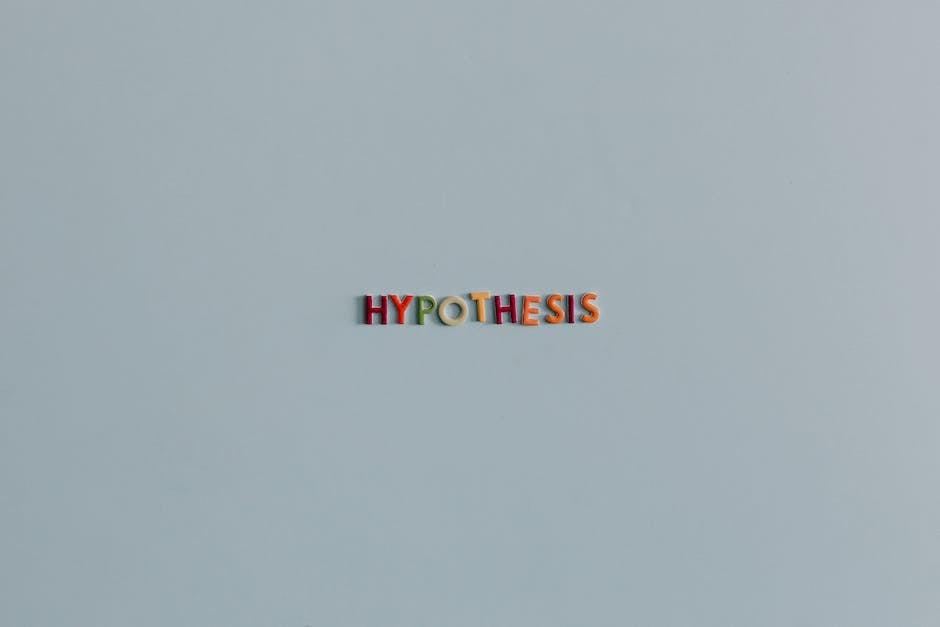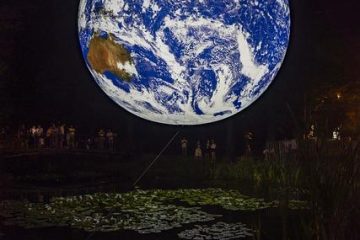In a world where nature’s intricate web of life unfolds like a mesmerizing tapestry, the Gaia Hypothesis emerges as a captivating theory intertwining science and mystique. This article delves into the essence of the Gaia Hypothesis, a concept that portrays our planet Earth not merely as a passive rock in space but as a living, breathing organism in its own right. Let’s embark on a journey to unravel the mysteries and marvels of this thought-provoking hypothesis, revealing how it transcends traditional scientific boundaries to offer a unique perspective on the interconnectedness of all living beings with the biosphere.
Table of Contents
- Understanding the Gaia Hypothesis: A Brief Overview
- Key Concepts and Principles of the Gaia Hypothesis
- Exploring the Interconnectedness of Gaia and Earth
- Practical Ways to Embrace Gaia Hypothesis in Daily Life
- Q&A
- The Way Forward
Understanding the Gaia Hypothesis: A Brief Overview
Gazing upon the intricate web of interconnected life forms that inhabit our planet, one cannot help but ponder the profound implications of the Gaia Hypothesis. At its core, this fascinating concept proposes that the Earth functions as a self-regulating organism, maintaining conditions necessary for life to flourish. Imagine a world where every organism, from the tiniest microbe to the mightiest redwood tree, plays a crucial role in the delicate balance of our biosphere.
Key Points Regarding the Gaia Hypothesis:
- The Earth is viewed as a single, self-regulating system.
- Interactions between organisms and the environment are crucial for maintaining balance.
- The concept challenges traditional views of the planet as a passive backdrop for life.
Implications of the Gaia Hypothesis:
- Encourages a deeper appreciation for the interconnectedness of all life forms.
- Raises questions about the consequences of human activities on the planet.
- Sparks curiosity about the mysteries of our dynamic and resilient Earth.
| Gaia Hypothesis | Summary |
|---|---|
| Earth as an organism | Self-regulation for optimal living conditions |
| Interconnectedness | Mutual dependencies among all life forms |
| Human impact | Considerations on human behavior and its effects |
Central to the Gaia hypothesis are the principles of homeostasis, feedback loops, and biosphere-geosphere interactions. These elements highlight the intricate relationships between living organisms and their environment, emphasizing the Earth’s capacity to self-regulate and adapt to changes. By viewing the planet as a unified and self-regulating system, the Gaia hypothesis challenges traditional views of Earth as a passive backdrop to life, inviting us to explore the dynamic interactions that shape our planet’s ecosystems.
| Concept | Description |
|---|---|
| Interconnectedness | The idea that all living organisms are linked in a complex web of relationships. |
| Homeostasis | The ability of the Earth to maintain stable conditions for life through feedback mechanisms. |
| Biosphere-geosphere interactions | The dynamic exchanges between living organisms and the Earth’s geology. |

Exploring the Interconnectedness of Gaia and Earth
unveils a profound relationship that goes beyond mere coincidence. The Gaia hypothesis posits that the Earth’s biosphere interacts with the physical aspects of the planet, creating a self-regulating system akin to a living organism. This theory challenges traditional views of our planet by emphasizing the dynamic balance between living organisms and their environment.
- Earth’s ecosystems
- Atmospheric conditions
- Biodiversity
Furthermore, the Gaia hypothesis suggests that Earth and all its inhabitants are intricately connected, influencing each other in a delicate dance of equilibrium. By understanding and respecting this interconnected web of life, we can strive to nurture and protect our planet for future generations to come.

Practical Ways to Embrace Gaia Hypothesis in Daily Life
One practical way to embrace the Gaia hypothesis in daily life is by fostering a deep connection with nature. Spend time outdoors, observe the intricate balance of ecosystems, and appreciate the interconnectedness of all living beings. Through mindful interactions with the environment, one can cultivate a sense of respect and stewardship for the Earth.
Another way to embody the Gaia hypothesis is by adopting sustainable practices in everyday routines. This can include reducing waste, conserving energy, supporting local organic agriculture, and prioritizing eco-friendly products. By making conscious choices that benefit the planet, individuals can contribute to the resilience and harmony of Gaia, our living planet.
Q&A
Q: What is the Gaia Hypothesis?
A: The Gaia Hypothesis, developed by scientist James Lovelock in the 1970s, proposes that the Earth functions as a self-regulating system. According to this theory, all living organisms on the planet interact with their inorganic surroundings to form a complex, self-regulating system that maintains the conditions necessary for life.
Q: How does the Gaia Hypothesis explain the relationship between organisms and the environment?
A: The Gaia Hypothesis suggests that Earth and all its inhabitants are interconnected and work together to create and maintain the conditions essential for life. Organisms influence the environment by regulating factors such as temperature, atmospheric composition, and nutrient availability, ensuring a stable and hospitable environment for life to thrive.
Q: What evidence supports the Gaia Hypothesis?
A: Proponents of the Gaia Hypothesis point to various pieces of evidence to support the idea of Earth as a self-regulating system. For example, the Earth’s atmosphere has remained within a relatively narrow range of temperatures and chemical composition for billions of years, despite significant changes in external factors. Additionally, the interactions between living organisms and their environment reveal intricate feedback mechanisms that contribute to the overall stability of the ecosystem.
Q: What implications does the Gaia Hypothesis have for environmental conservation?
A: The Gaia Hypothesis emphasizes the importance of recognizing the interconnectedness of all life forms on Earth and the delicate balance required to sustain our planet. Understanding and respecting the Earth as a self-regulating system can inspire practices that promote ecological harmony and biodiversity conservation. By working in harmony with nature, we can contribute to the health and vitality of our planet for generations to come.
Q: How has the Gaia Hypothesis influenced scientific thinking about the relationship between organisms and their environment?
A: The Gaia Hypothesis has sparked debate and further investigation into the interconnectedness of life on Earth and its impact on the environment. While not without controversy, this theory has encouraged scientists to consider holistic approaches to understanding ecological systems and the role of living organisms in shaping the planet. By exploring the implications of the Gaia Hypothesis, researchers continue to uncover new insights into the dynamic interactions that sustain life on Earth.
The Way Forward
In a world teeming with complexities, the Gaia Hypothesis stands as a beacon of interconnectedness and harmony. As we delve into the intricate web of relationships between living organisms and the Earth itself, we are reminded of the delicate balance that sustains our planet. From the whispering winds to the roaring oceans, every element plays a vital role in the grand symphony of Gaia.
As we bring our exploration of the Gaia Hypothesis to a close, let us carry forward the lessons of respect, cooperation, and reverence for the world around us. May we tread lightly upon this precious Earth, recognizing that we are but mere threads in the rich tapestry of life.
In our quest for understanding, may we find not only knowledge but also a deep-seated appreciation for the interconnectedness of all things. Let the Gaia Hypothesis be a guiding light, inspiring us to nurture and protect the intricate web of life that envelops us. Let us walk hand in hand with Gaia, embracing our responsibilities as stewards of this magnificent planet.



0 Comments